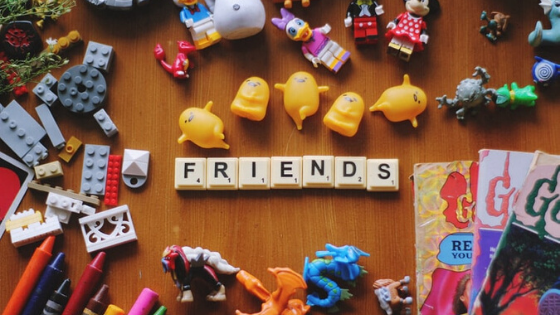Four Fun Games You Can Play During this Festive Period
As the year draws to the end of the year, many families will be planning on where to go spend the holiday. Following the rise of the coronavirus pandemic in the world, Fun Games many families will be forced to spend the Christmas holiday at home behind closed doors.
Keeping the family fun during this time can be so tiring as they many families will be looking for what to do to keep them and their kids happy as they will be no outing. We will try to give you some local fun games every Nigerian family can engage in which will be fun and also very affordable with no risk at all.
For kids, holidays should not be all about playing video games, watching television and sleeping all day. Holidays should be an avenue for them to bond together with other family members, learn new stuff even while having fun. In Nigeria, there are several fun places to take kids on a vacation that would facilitate great family bonding.
If you are struggling to make a choice from the various types of games which you can introduce to your family, relax and enjoy this article as we give five games which very economical, fun with no risk of sort which you play with your family.
The Various Games are:
Ludo Game
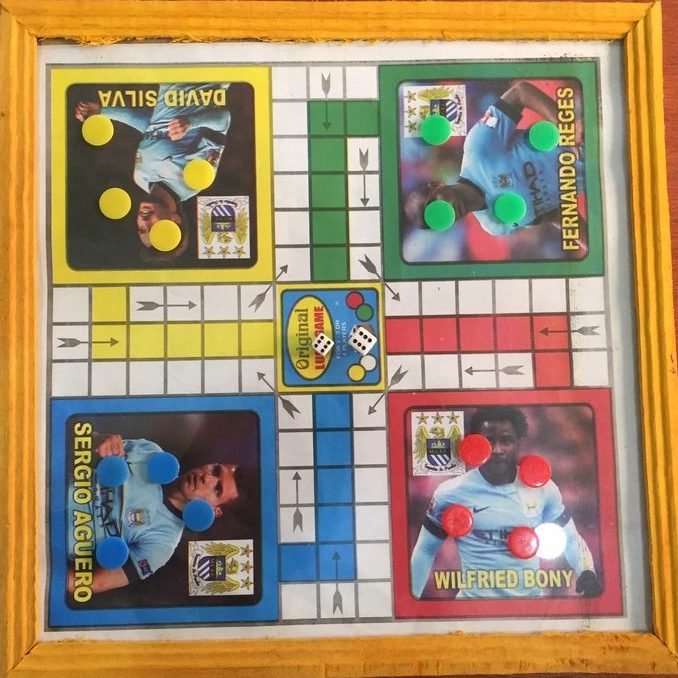
A Ludo board is a square with a pattern on it in the shape of a cross, each arm being divided into three adjacent columns of eight squares. The middle squares form the home column for each colour and cannot be landed upon by other colours.
The middle of the cross forms a large square which is the ‘home’ area and which is divided into 4 home triangles, one of each colour. At each corner, separate to the main circuit are coloured circles (or squares) where the pieces are placed to begin.
Counters start their circuit one square in from the end of the arm and adjacent to the starting circle. Avoid modern boards which incorrectly place the first square at the end of the arm. The starting square, the starting circle, the home triangle and all the home column squares are coloured to match the corresponding pieces.
How is Played
Each player rolls the die; the highest roller begins the game. Players alternate turns in a clockwise direction. To enter a token into play from its yard to its starting square, a player must roll a 6. If the player has no tokens yet in play and rolls other than a 6, the turn passes to the next player.
Recommended variants
For young children, a piece may start with a throw of a 1 or a 6. Speeds things up. Wort Game (Card Games Generally). Each player chooses one of the 4 colours (green, yellow, red or blue) and places the 4 pieces of that colour in the corresponding starting circle. A single die is thrown to determine movement. Players take turns in a clockwise order; highest throw of the die starts.
Each throw, the player decides which piece to move. A piece simply moves in a clockwise direction around the track given by the number thrown. If no piece can legally move according to the number thrown, play passes to the next player. A player must throw a 6 to move a piece from the starting circle onto the first square on the track. The piece moves 6 squares around the circuit beginning with the appropriately coloured start square (and the player then has another turn).
If a piece lands on a piece of a different colour, the piece jumped upon is returned to its starting circle. If a piece lands upon a piece of the same colour, this forms a block. This block cannot be passed or landed on by any opposing piece.
Winning
When a piece has circumnavigated the board, it proceeds up the home column. A piece can only be moved onto the home triangle by an exact throw. The first person to move all 4 pieces into the home triangle wins.
Chess Game
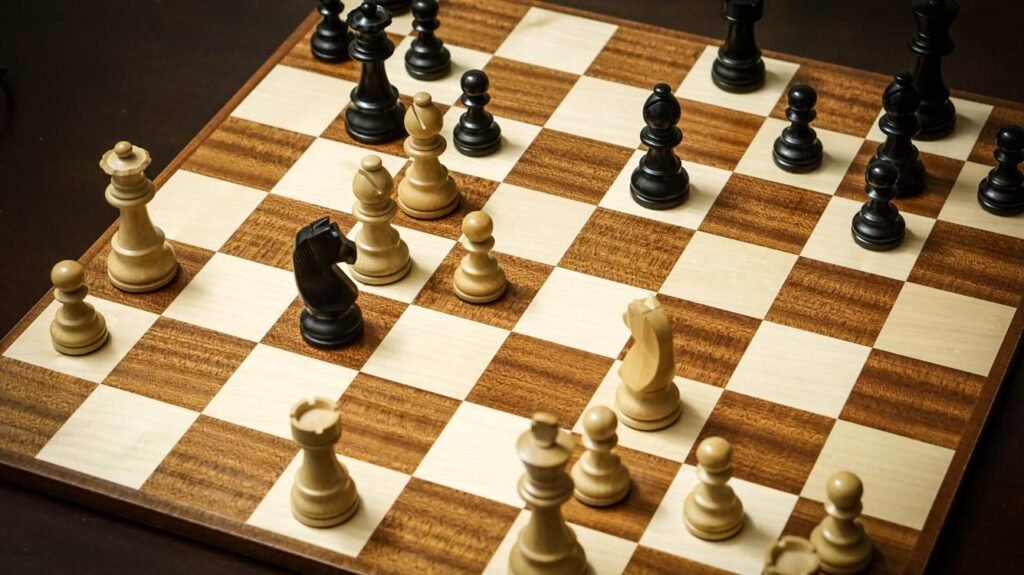
Chess is a two-player board game using a chessboard and sixteen pieces of six types for each player. Each type of piece moves in a distinct way. The object of the game is to checkmate (threaten with inescapable capture) the opponent’s king. … A game can also end in a draw in several ways.
The setup of pieces is very important. The major pieces (rook and queen), minor pieces (bishop and knight), and the king are all on the last row of a chessboard. The rooks occupy the corner squares. Next to the rook is a knight. The bishop takes the other square next to the knight. The queen is always placed on her color (white queen on white square), and the king is placed next to her.
Your eight pawns occupy the next row all in a straight line. Your opponent’s pieces reflect the same positions as yours, including the queen that occupies a square that matches her color.
To start a game, White always moves first.
Any pawn may move but the strongest initial moves by pawns are by the middle ones to control the center of the board. In addition, a knight may move. Because the other pieces are blocked by the line of pawns, they may not move yet. Before we discuss opening moves more, let’s get to know each piece and how it moves.
Draw
Games do not always end with a win or a loss. They may also end in a draw (a tie), which is the result of neither player winning. Both players can agree to a draw, and a draw also results when a stalemate a player on the next turn cannot make a legal move and is not in check occurs.
A draw also occurs when neither player has sufficient pieces to checkmate an opponent, or when an event known as threefold repetition occurs (the same position occurs three times with the same player to move), or when the 50-move rule is met (the last 50 moves by each player doesn’t result in a capture or a pawn move).
Game over!
A game may also end when a player resigns. Although we want to win, playing a game with a hopeless position is frustrating and discouraging. When you become experienced, it’s best to resign and start a new game in that situation, but in your first few years of playing, you should play it out as your opponent might not know how to win, or may make a big mistake.
Monopoly
Monopoly is a board game currently published by Hasbro. In the game, players roll two six-sided dice to move around the game board, buying and trading properties, and developing them with houses and hotels. Players collect rent from their opponents, with the goal being to drive them into bankruptcy.
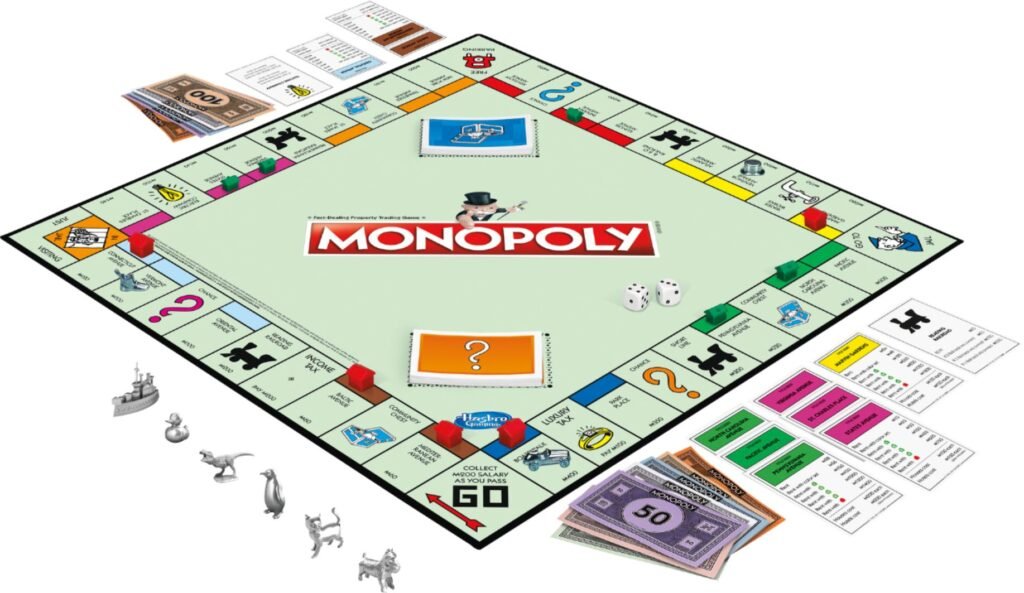
Needed: Two to eight players; Monopoly board game
Setup
The board is set up by stacking the chance and community chest cards on the board in the spaces provided. Each player selects a token to move around the board. Each token starts on the GO space.
Each player receives 1,500 dollars to start the game. The 1,500 dollars is given in (2) 500s, (2) 100s, (2) 50s, (6) 20s, (5) 10s, (5) 5s, and (5) 1s. One player will need to be designated the banker. The banker will distribute and collect money and manages the properties, houses, and hotels.
Objective
The object of the game is to become the wealthiest player in the game through buying, renting, and selling property.
Game Play
Before the game play begins, each player will roll the two dice. The player with the highest total value rolled gets to play first. Play then moves clockwise left.
On each player’s turn, the two dice are rolled, and the player’s token moves spaces equal to the value rolled. Based on the space landed on, an action will be taken.
Board Spaces and Actions
Most spaces represent a property. When landed on, the player has the option to purchase the property from the bank. A property’s price is listed on the bottom of the space.
A player may land on a chance space and will draw a chance card. The action described on the chance card is then completed, and the card is returned to the bottom of the pile.
A player may land on the community chest space and will draw a community chest card. The action described on the community chest is then completed, and the card is returned to the bottom of the pile.
The player may land on a tax space and will pay the tax described. If a player lands on the jail space, nothing happens, as he or she is just visiting. If a player lands on the free parking space, nothing happens. If a player lands on the go to jail space, the player goes into jail.
Every time a player lands on or passes the GO space, the player will collect 200 dollars from the banker. If a player lands on a property space that is already owned by another player, that player will have to pay the owner rent. The amount owed is listed on the property card.
Winning
Once a player owes more money than can be paid and has no properties to sell, he or she is declared bankrupt and is out of the game. The last player to remain in the game, after all other players have gone bankrupt, is the winner.
Rules
When a player lands on an open property but chooses not to buy the property from the bank for the printed price, the property is auctioned off. All players will make bids, and the highest ending bid will get the property for the final amount bid. When a player lands on a space that you own, you are responsible for asking and collecting the rent before the next player rolls the dice.
If a player rolls the same number on both dice, he or she will move the amount, complete the required action, and then gets to roll again. This is known as rolling doubles. If a player rolls 3 doubles in a row, that player goes directly to jail without passing go or collecting 200 dollars.
When in jail, a player has 3 ways to get out of jail. One, by rolling the same number on both dice, known as rolling doubles. Also, by playing a get out of jail free card. The get out jail free card can be drawn from the chance or community chest piles, or purchased from another player at an agreed upon price. Or lastly, by paying $50 to the bank before you roll. Then whatever you roll, you will move that many spaces.
If a player owns all the properties of the same color, the rent doubles. For example, when a player owns all the orange properties, and another player lands on Tennessee ave., the rent would be 28 dollars.
When a player owns all the properties of the same color, houses can be bought for the properties. The cost of a house is listed on the property card and is paid to the bank. When a house is on a property, the rent increases according to the card. Houses must be split as evenly as possible among the properties meaning each property must have one house before adding a second house to a property.
Once all the properties in a color have four houses, a hotel can be purchased. This again raises the rent for other players that land on this property. The money spent on hotels is paid to the bank.
The bank may run out of houses and hotels to sell. In this case, a player will have to wait for a house or hotel to be sold back to the bank before buying one.
When needed, a player can sell hotels and houses back to the bank for half the price paid for them. If a property has no houses or hotel on it, a player can sell the property to another player for any amount agreed upon.
A property with no houses or hotel on it can be mortgaged backed to the bank. The mortgaged amount received from the bank is on the back of the property’s card. When a property is mortgaged, no rent is collected when players land on it. The mortgage is lifted when the mortgaged amount is paid back to the bank, plus 10%.
Whot Card Game
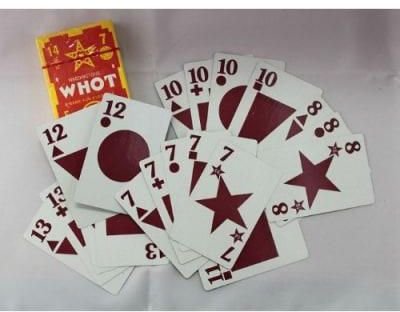
The play ends when a player wins by getting rid of all their cards. The other players score penalty points for the cards left in their hands. Circles, squares, crosses and triangles count face value, stars count double (the penalty value is usually printed inside the small stars), and Whot cards count 20.
The Whot card game can be played by any amount of people as the game has no limited number. With as low as #100 (one hundred naira) you can keep your family all smiling. There are many partners it can be played, it could be in highest number out which is when one player out of the whole players wins the person with the highest number of cards will drop until it remains just two people who will play the final.
The other style could be when one person wins they rest will keep playing till the very last two-player play to determine who drops. The whot card game has five shapes which are played with, it has a cross, cycle (ball), triangle, square and star it also has an additional card which is called the I need a card which number 20. The numbers on the cards start from 1-14, the star shape has number multiple by two undernets the number it bears. E.g 8 is 16, 7 is 14 as so on, this numbers are countered when a winner is decided.
There is no limit to the type of games who can actually play with his family and loved ones but the above games are easy, fun and very cheap. If you want to go to the high side you can also try other games like the Play Station games. There is Play Station 3 to 5 which will actually make much sense and fun.
Families can also try other games like the truth or dare, hide and seek and so on.
